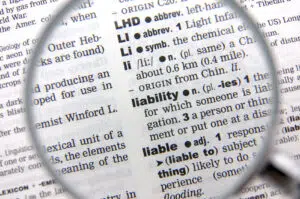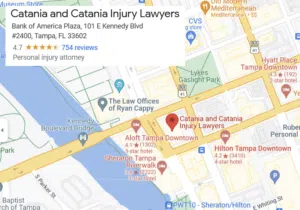
Liability and fault are terms that you hear in personal injury cases. However, they do not mean the same thing.
The person at fault in your personal injury case is the person who caused your injury. However, that does not always mean the person is liable for your injuries and damages.
Liability is a legally enforceable claim against another party. In a personal injury claim, the plaintiff must prove all of the legal elements of a cause of action to hold the defendant liable for damages. In other words, if you cannot prove the legal elements required for civil liability, the defendant nor his liability insurance provider is legally obligated to compensate you for your losses.
In a liability case, the injured party has the burden of proving each legal element of liability by a preponderance of the evidence. This means proving that it is more likely than not the defendant is responsible for causing your injury.
Table of Contents
What Are the Types of Liability in a Personal Injury Case?
In a civil lawsuit, you can claim one or more causes of action. A cause of action is a set of factual elements that creates a legal responsibility. However, you must prove each of the facts you allege in your lawsuit to create legal liability for damages.
Below are the most common types of liability alleged in a personal injury liability lawsuit.
Negligence
The failure to use a level of care that a person with reasonable prudence would use under the same circumstances is negligence. Negligence is one of the most common types of liability used in personal injury cases.
To prove negligence, you must prove that the other party owed you a duty of care. The duty of care is a legal obligation created because of your relationship with the other party. For instance, drivers have a duty to obey traffic laws. Therefore, they owe a duty of care to everyone on the road.
After proving that a duty of care existed, you must prove that the party breached that duty of care and the breach is what caused your injury. Finally, you must prove that you sustained damages because of the breach and subsequent injury.
If you cannot link each element together to create a chain of causation, you cannot hold the party legally liable for your damages. For example, a driver might be negligent because he was driving at excessive speeds. However, if you cannot link his conduct to the cause of your car crash, he is not legally responsible for your damages.
Strict Liability
Strict liability may apply in civil cases and cases involving criminal acts. In civil cases, strict liability means that a party can be held liable because something is inherently dangerous or hazardous.
To be held strictly liable for damages, the victim only needs to prove that they were injured and sustained damages. They do not need to prove that a party was negligent or meant to cause them harm.
For example, dog owners can be held strictly liable for dog bites. All you need to prove is that the dog bit you, and you sustained damages.
Product liability is based on the theory of strict liability. You only need to prove that a product was defective and the defect caused your injury. You do not need to prove the company was negligent to recover compensation.
Vicarious Liability
Vicarious liability refers to a party being held financially responsible for damages caused by another party’s conduct. There must be a supervisory relationship between the parties for the party who did not cause harm to be held liable for damages.
For example, trucking companies are often held liable for truck accidents caused by their drivers. Likewise, stores are vicariously liable for falls caused by the errors and mistakes made by their employees. Also, hospitals are often named as defendants in medical malpractice lawsuits when a nurse injures a patient.
It is important to note that employers would not be liable for acts that occur outside the scope of employment. They are also not responsible for acts of an independent contractor.
What Can You Recover When Someone is Liable?
When you prove that another party is liable for your damages, you can recover compensation for a variety of losses.
The types of damages in a personal injury case include:
- Medical expenses
- Lost wages
- Mental anguish
- Disabilities and impairments
- Emotional suffering
- Physical pain
- Loss of enjoyment of life
- Personal care and nursing care
In most cases, you can recover compensation for your economic damages and non-economic damages. If the defendant’s conduct was grossly negligent or intentionally dangerous, you could also receive punitive damages.
If you’ve been injured and think someone may be liable for your injuries, our lawyers at Catania and Catania Injury Lawyers can help you. Contact our Tampa injury lawyers office near you online or call us at (813) 222-8656 to discuss your case.




